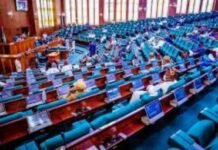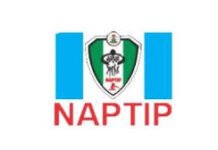There has been fresh controversy over the far-reaching orders granted by Justice Dehinde Dipeolu of the Federal High Court, Lagos, which froze the bank accounts, shares, and assets of Nestoil Limited and its affiliates in a high-stakes debt recovery suit involving unverified claims exceeding $1.01 billion and N430 billion.
In a ruling on an ex parte motion dated October 15, 2025, and filed on October 20, Justice Dipeolu issued sweeping orders restraining Nestoil Limited, Neconde Energy Limited, and other Nestoil affiliates from operating their bank accounts or dealing with funds, shares, or assets held in any Nigerian financial institution.
At the centre of the storm is Neconde Energy Limited, which has faulted its inclusion in the Mareva and receivership orders obtained by FBNQuest Merchant Bank Limited and First Trustees Limited, describing the orders as wrongful, oppressive, and a clear case of judicial overreach.
Meanwhile, Glencore Energy UK Limited, Fidelity Bank Plc, Mauritius Commercial Bank Limited, and the Africa Finance Corporation (AFC) — collectively described as Senior Lenders – have filed motions seeking to be joined as defendants to overturn the sweeping ex parte court orders.
Through their counsel, Olufemi Oyewole (SAN), the Senior Lenders asked the Court to set aside or vary the ex parte orders of October 22, 2025, which they said threaten their security interests in Neconde’s assets and operations.
They argued that the plaintiffs failed to disclose in their affidavit the existence of the Senior Secured Medium-Term Facility Agreement dated April 27, 2016, under which Neconde obtained a $640 million syndicated loan.
They added that the Deed of Charge dated December 8, 2022, relied upon by the plaintiffs in obtaining the ex parte orders, was registered against Nestoil Limited only and not against Neconde Energy Limited, rendering it defective and unenforceable against Neconde.
Citing Clause 3.4 of the Deed of Charge, they noted that FBNQuest’s charge “shall rank in all aspects subordinate and subject to the charges and assignments constituted by the Neconde Senior Security Documents.”
They therefore urged the Court to vacate or vary the interim orders or restrain further interference with Neconde’s assets pending determination of the substantive suit.
They asserted that the interim orders have made it impossible for Neconde to service its obligations to the Senior Lenders, potentially triggering events of default that could lead to insolvency actions with highly disruptive consequences.
When the case came up on Friday November 7, 2025, Justice Dipeolu revealed that he had received the petition sent to the Chief Judge of the Federal High Court concerning his handling of the case and related cases.
He subsequently suspended further proceedings pending the Chief Judge’s directive on whether he should continue or recuse himself.
The petitions accused the judge of judicial misconduct and reckless issuance of sweeping ex parte Mareva orders in two related cases — FBNQuest Merchant Bank & Anor v. Nestoil Ltd & Ors (FHC/L/CS/2127/2025); Aries Energy v. Neconde Energy & Ors (FHC/L/CP/1439/2025).
The petitioners alleged that Justice Dipeolu granted freezing and receivership orders without verifying ownership of several properties, including Nestoil Tower, which allegedly belong to third parties not indebted to the plaintiffs.
They also accused him of granting freezing and receivership orders against Neconde without any basis and authorising the Nigerian Navy and Department of State Services (DSS) to assist a receiver in enforcing civil orders and selling crude oil from OML 42 — actions they said contravened the preservative nature of interim injunctions.
They urged the National Judicial Council to investigate the matter and the Chief Judge of the Federal High Court to reassign all related cases to another judge to preserve public confidence in judicial impartiality.
Neconde has also filed processes in court praying the Court to discharge the ex parte orders.
![]()










